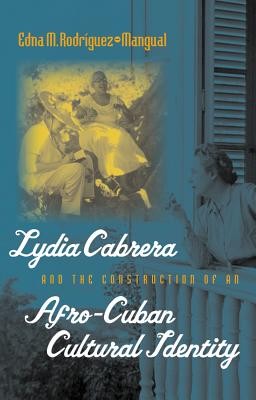
- We will send in 10–14 business days.
- Author: Edna M RodrÃguez-Plate
- Publisher: University of North Carolina Press
- ISBN-10: 0807855545
- ISBN-13: 9780807855546
- Format: 14 x 21.6 x 1.4 cm, softcover
- Language: English
- SAVE -10% with code: EXTRA
Lydia Cabrera and the Construction of an Afro-Cuban Cultural Identity (e-book) (used book) | bookbook.eu
Reviews
Description
Lydia Cabrera (1900-1991), an upper-class white Cuban intellectual, spent many years traveling through Cuba collecting oral histories, stories, and music from Cubans of African descent. Her work is commonly viewed as an extension of the work of her famous brother-in-law, Cuban anthropologist Fernando Ortiz, who initiated the study of Afro-Cubans and the concept of transculturation. Here, Edna Rodriguez-Mangual challenges this perspective, proposing that Cabrera's work offers an alternative to the hegemonizing national myth of Cuba articulated by Ortiz and others.
Rodriguez-Mangual examines Cabrera's ethnographic essays and short stories in context. By blurring fact and fiction, anthropology and literature, Cabrera defied the scientific discourse used by other anthropologists. She wrote of Afro-Cubans not as objects but as subjects, and in her writings, whiteness, instead of blackness, is gazed upon as the "other." As Rodriguez-Mangual demonstrates, Cabrera rewrote the history of Cuba and its culture through imaginative means, calling into question the empirical basis of anthropology and placing Afro-Cuban contributions at the center of the literature that describes the Cuban nation and its national identity.
- Author: Edna M RodrÃguez-Plate
- Publisher: University of North Carolina Press
- ISBN-10: 0807855545
- ISBN-13: 9780807855546
- Format: 14 x 21.6 x 1.4 cm, softcover
- Language: English English
Lydia Cabrera (1900-1991), an upper-class white Cuban intellectual, spent many years traveling through Cuba collecting oral histories, stories, and music from Cubans of African descent. Her work is commonly viewed as an extension of the work of her famous brother-in-law, Cuban anthropologist Fernando Ortiz, who initiated the study of Afro-Cubans and the concept of transculturation. Here, Edna Rodriguez-Mangual challenges this perspective, proposing that Cabrera's work offers an alternative to the hegemonizing national myth of Cuba articulated by Ortiz and others.
Rodriguez-Mangual examines Cabrera's ethnographic essays and short stories in context. By blurring fact and fiction, anthropology and literature, Cabrera defied the scientific discourse used by other anthropologists. She wrote of Afro-Cubans not as objects but as subjects, and in her writings, whiteness, instead of blackness, is gazed upon as the "other." As Rodriguez-Mangual demonstrates, Cabrera rewrote the history of Cuba and its culture through imaginative means, calling into question the empirical basis of anthropology and placing Afro-Cuban contributions at the center of the literature that describes the Cuban nation and its national identity.


Reviews